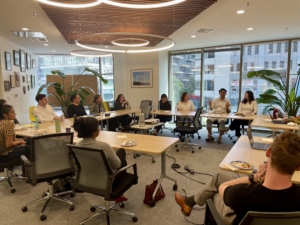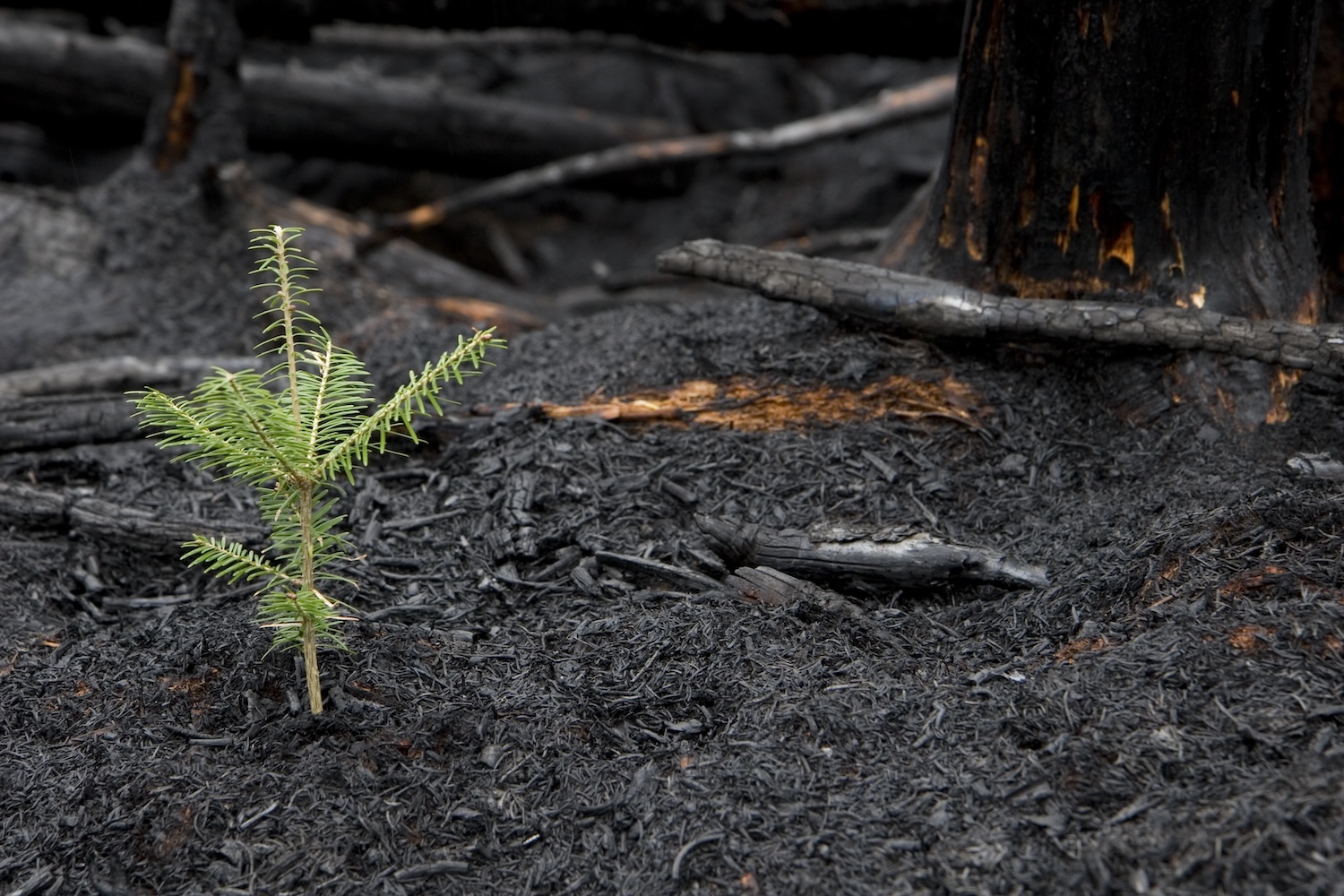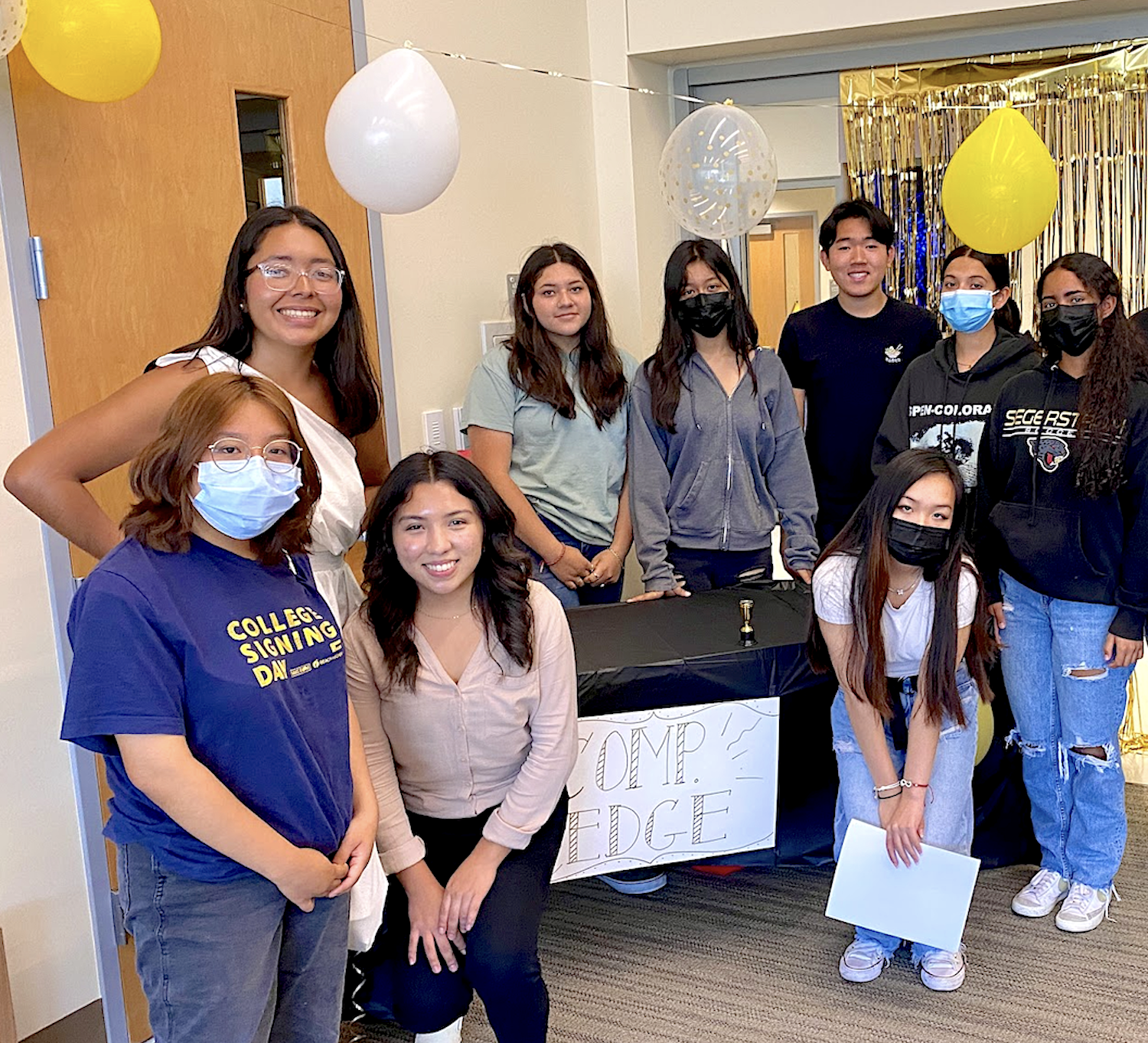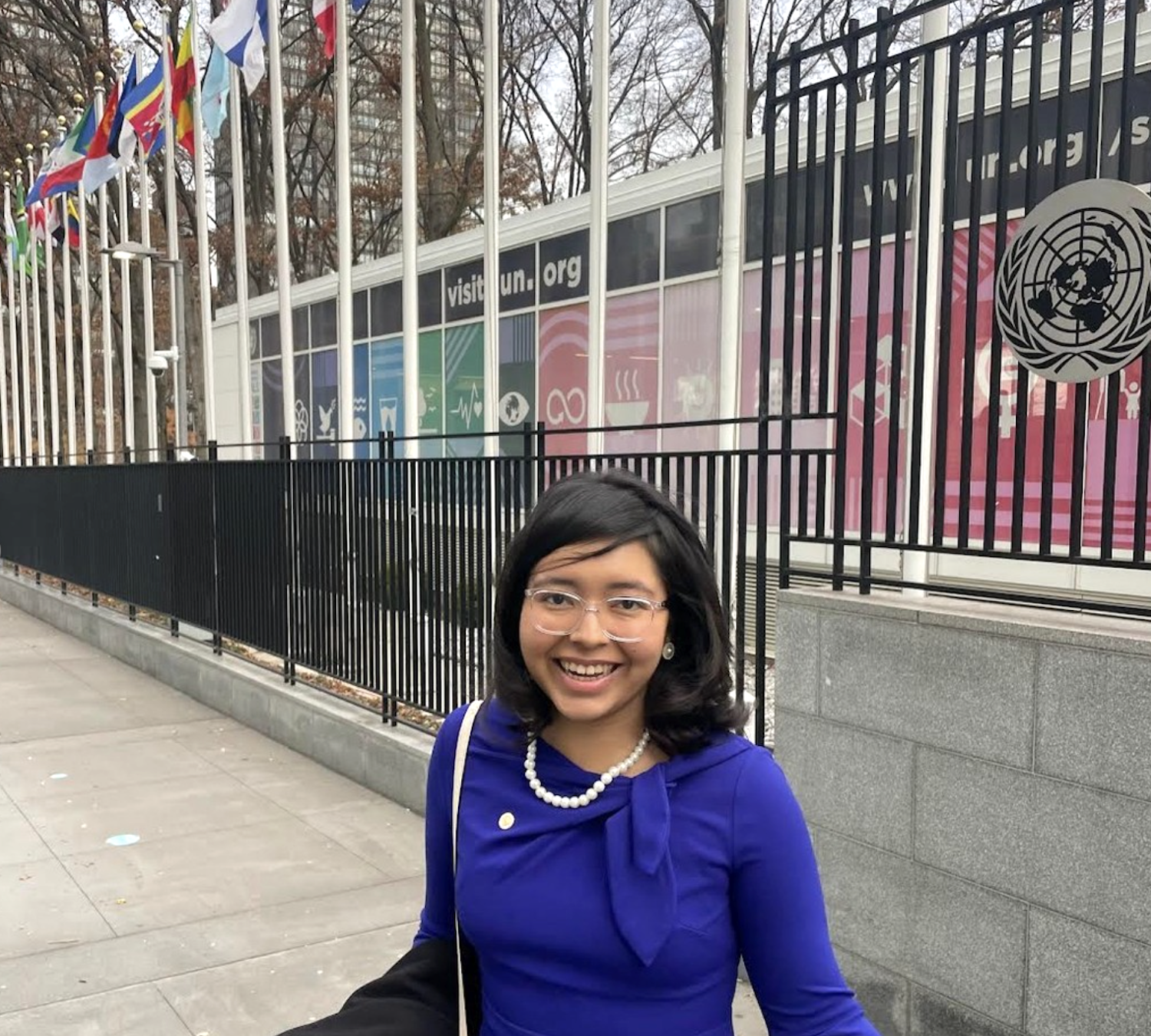Former U.S. Department of Transportation Assistant Secretary for Research and Technology Delivers Luskin Lecture Robert Hampshire shares lessons learned leading research and technology agenda for the nation’s transportation systems.
By Stan Paul
For Robert Hampshire, former Assistant Secretary for Research and Technology at the United States Department of Transportation (USDOT), leading innovation at the federal level involves cooperation and building trust among multiple industries and stakeholders.
Hampshire, who also served as the department’s Chief Science Officer — the first person to fill that role in more than four decades — came to UCLA this spring to discuss the importance of a mission-focused approach to challenges in transportation safety and serving all travelers on the nation’s roads and in the air.
Adam Millard-Ball, professor of urban planning and director of ITS, introduced the keynote speaker for the April 28 Luskin Lecture co-hosted by the UCLA Institute of Transportation Studies (ITS) as part of the Martin Wachs Distinguished Lecture Series.
Hampshire also talked about supply chain resilience and the future of un-crewed aerial systems (UAS) and shared his first-hand experiences and lessons learned during his four-year public service post. At USDOT, he led the federal agency’s research and technology agenda, including its $2 billion research and technology portfolio, across all modes of U.S. transportation while leading more than 1,000 public officials and public servants.
Since completing his service in 2025, Hampshire has settled back into his role as associate professor of public policy at the University of Michigan. But, he told the audience, “I’ve have had a little bit of time to rethink and formulate some thoughts about particularly now what it means to serve and the complexity of our times, challenges that we see to democracy, the polarization. But, all this in the context of so much technological change.”
As an academic, Hampshire describes his research as a blend of public policy, operations research, data science, and systems approaches to analyze novel transportation systems. These include smart parking, connected vehicles, autonomous vehicles, ride-hailing, bike sharing, car sharing, as well as pedestrian and bicyclist safety. At the same time, he focuses on environmental impacts, equity, and access to opportunities.
Hampshire said an additional aim of his talk was to provide examples to researchers and students how to be more impactful, particularly as researchers.
“I really believe that as researchers, technologists, within the transportation sector, we need to work diligently to increase with our social capital. That’s our networks, not just who you know,” he said, emphasizing the importance of building trust, especially with different communities and building reciprocity and shared values, “…reaffirming things like ‘safety is why we’re here’…and particularly how we need to be more embedded into the transportation ecosystem, and also the non-transportation ecosystem — our friends in health, our friends in education and others.”
He recalled a number of experiences where research and technology played, and continues to play, an important public role. One example that made an important national impact was the implementation of 5G cellular which came into conflict with safety concerns for U.S. aviation while he was with USDOT. In late 2021, the FAA was preparing to ground every single airplane across the nation, just days before Christmas. But, Hampshire said, months before he was tasked with leading the technical response side of negotiations that involved the FAA, the White House and industry.
Hampshire said what was missing at that moment was social capital to get things done. But, ultimately a deal was negotiated where the telecom industry delayed deployment of 5G so they could work more closely with the aviation industry to roll it out nationwide in an orderly manner with no incident, Hampshire said.
“These are all little stories that you don’t hear, but there’s heroic efforts behind it. And I think that level of social capital and working relationships that were built during this time, are certainly going to serve the nation,” he said.
Ann E. Carlson, Faculty Director, Emmett Institute on Climate Change & the Environment at UCLA School of Law, later joined the lecture serving as moderator for further discussion on issues including drastic changes and budget cuts occurring at the federal level and their impact on federal employees and transportation. Hampshire and Carlson, who also served in the Biden-Harris administration as acting administrator of the National Highway Traffic Safety Administration (NHTSA), discussed the future of automated vehicles, high-speed rail in California and also shared anecdotes about working with former Secretary of Transportation Pete Buttigieg.
Hampshire praised the leadership of Buttigieg and the many federal employees he worked with during his first stint in public service saying, “I’ll forever be grateful for what they taught me about public service and certainly, for the students and others, there’s true honor in public service. It’s something that’s worthwhile, and I’d do it again.”
Watch the full video of the event. View photos.
The UCLA Luskin Lecture Series enhances public discourse on topics relevant to the betterment of society. The Series features renowned public intellectuals, bringing together scholars as well as national and local leaders to address society’s most pressing problems. Lectures encourage interactive, lively discourse across traditional divides between the worlds of research, policy and practice. The Series demonstrates UCLA Luskin’s commitment to encouraging innovative breakthroughs and creative solutions to formidable public policy challenges.
The UCLA Institute of Transportation’s Wachs Lecture Series draws innovative thinkers to the University of California to address today’s most pressing issues in transportation. Created by students to honor the late Professor Martin Wachs upon his retirement from the University, the lecture rotates between Berkeley and UCLA, the campuses at which Marty taught. He passed away April 12, 2021.







